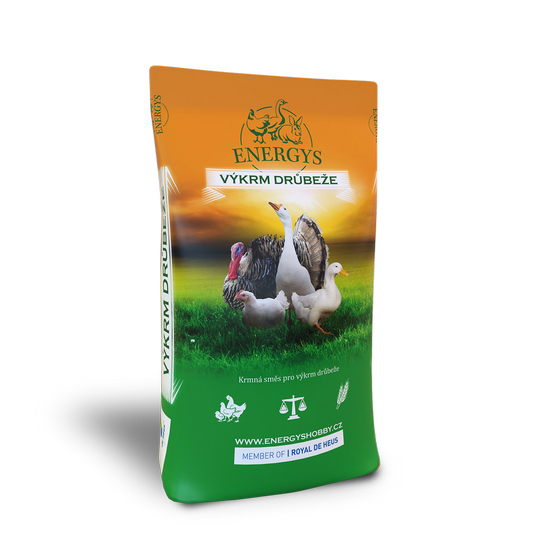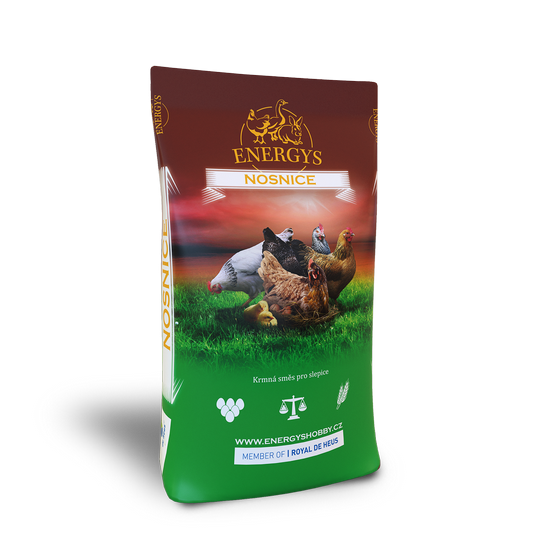Rabbits
Poultry
Laying hens
Quails
Guinea pigs
Pigs
Ostriches
Sheep and goats
Pigeons
Pheasants
Forest animals
Why laying hens eat their own eggs?
Hens may eat their eggs for several reasons and before you resort to killing the hen that eats eggs, you can try various methods for eliminating this problem.
This frequent phenomenon may be caused by several factors:
- Thin eggshell – the eggshell becomes thin due to a lack of minerals especially in the case of intensive egg laying. Hens may accidentally break an egg; the contents spill out and the hens learn to consume eggs and this may even develop into a bac habit. Hens may then destroy the laid eggs by deliberate pecking into the eggshell.
- This may also be caused by other nutritional shortcomings – a lack of protein or vitamins.
- Insufficient space with lacking stimuli for natural activities (scratching, dust bathing, collecting fodder).
- Unsuitable laying nests with increased likelihood of damaging eggs.
The first two causes can be prevented simply by feeding a complete fodder mixture for laying hens with sufficient calcium contents (hens need 3 – 5 grams of calcium per day), or by providing vitamin and mineral supplements (if you only feed the hens grain or household leftovers). When a bad habit develops, eliminating this is problematic. Measures need to be taken to remove all eggs immediately after they are laid, for example using especially constructed laying nests. Sometimes excluding the laying hen that eats eggs from breeding is the simplest solution because the hen cannot unlearn this habit.
Related posts
8. April 2025
Breeders raising hens for egg production naturally want them to produce as many eggs as possible while keeping costs low. For this purpose, commercial breeders exclusively use specially-bred hybrid layer hens created by crossing different genetic lines of pure breeds. These hybrid breeds carry in their genetic information the desired traits such as a high…
19. June 2024
The domestic chicken, or hen, is one of the most important farm animals and provides benefits in the form of eggs and meat. Today, more and more emphasis is being placed on animal welfare. As a result, farmers are already starting to prepare for mandatory changes to the housing of laying hens. The following article…
19. February 2024
The popularity of raising chickens in household conditions has been rising in recent years. This trend may be due to several factors, one of these surely being the search of high-quality foods, a more sustainable lifestyle and desire for greater independence. Breeding chickens at home also allows owners to control the animals’ living conditions and…
26. October 2022
Chickens are the most numerous bird species ever, with 26 billion breeding representatives. Unsurprisingly, they are divided into several groups according to different aspects. Which division is the most common, and which breeds of hens should you definitely be familiar with?
3. October 2022
When keeping chickens, one may wonder how long a hen actually lives. There is no clear answer to this question. It always depends on several factors – some you can influence, some unfortunately you cannot. How can you contribute to the long life of your hens and how does the life of a fowl work?
Related products

POULTRY UNI 30
A mashed concentrate for fattening of all categories of poultry, which includes the highest quality soja. It is mixed with cereals in a ratio of 20-40% (by type or phase of fattening). It contributes to fast growth and a high meat content. It does not contain coccidiostats.

LAYER REPRO
Granulated feed for laying hen breeds. Supports higher hatching rates and the successful development of the embryo. Higher content of chosen substances). The laying hen must have access to an adequate amount of potable water.

LAYER GOLD
Granulated feed for laying hens when laying. Supports high laying eggs with a solid shell and a beautiful yolk color. It follows the feeding of the Chicken MIDI mixture. Indicative feed consumption per 1 year ranges from 50-60 kg / piece.

LAYER KLASIK
A powered feeding mix intended for laying hens. With its rough shredded structure it contributes to maximum usability.

CHICKEN MIDI
From the 5th week to the end of the 20 week old chickens. It follows on from feeding with the Chicken MINI feed. Through its make up it helps in the correct development of the organism and with future high usability. It doesn’t contain coccidiostats. It is produced in two forms, granulated and powder.

CHICKEN MINI
A crumbled compound feed without anti-coccidiosides. Suitable for reared chickens of the laying hen type till the end of their 4 weeks of age. It contains a balanced ratio of nutrients supporting the correct development of chickens. For weaning chickens the following mix is CHICKEN MIDI.
